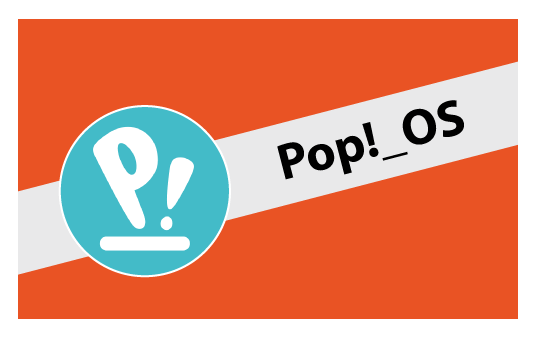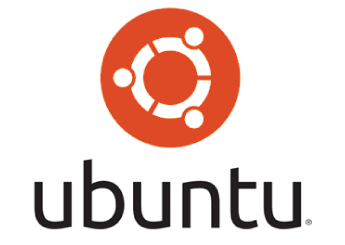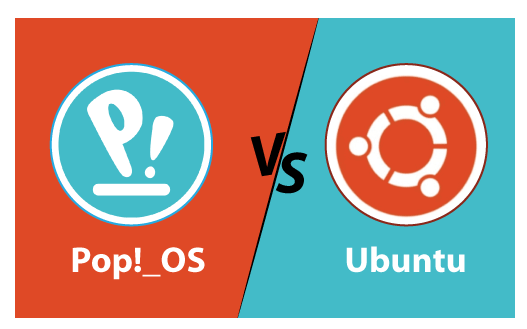Pop OS vs. Ubuntu
What is Pop!_OS?
Pop!_OS is a free and open-source Linux distribution based on Ubuntu, including a custom GNOME desktop environment. System 76, an American Linux computer manufacturer, established this distribution. Pop!_OS is designed to be included with System 76 PCs, although it may also be downloaded and installed on most other computers.

Pop!_OS comes with complete out-of-the-box support for AMD as well as Nvidia GPUs. Because of its built-in GUP support, it’s thought to be a straightforward distribution to set up for gaming. It comes with disk encryption by default, streamlines window and workshop management, keyboard shortcuts for navigation, and built-in power management profiles. Packages for TensorFlow and CUDA are also included in the most recent releases.
The source code for the release version of Pop!_OS is hosted in a GitHub repository, mostly maintained by system76. Unlike some other Linux distributions, it is not community-driven, while external programmers can contribute, view, and modify the source code. They are also able to make customized ISO images and redistribute them under another name.
Features of Pop!_OS
The following are the features of Pop!_OS:
- Stacking feature
- New application switcher and launcher
- Linux kernel 5.8
- Automatic window tiling
- Improved hybrid graphics support
- GNOME 3.36
- Flatpack support added in Pop!_shop
What is Ubuntu?
Ubuntu is a Linux-based operating system. Ubuntu is developed for network servers, PCs, and smartphones. Canonical Ltd, a UK-based firm, is responsible for its development. The principles which are used to develop Ubuntu software are based on open-source software development.
Ubuntu is an open-source operating system that is based on the Debian GNU/Linux distribution. It includes all the features of the Unix operating system with an added customizable GUI, which makes it famous in research organizations and universities.

Many software products in Ubuntu are licensed under the GNU General Public License. This permits users to create their own version of the application by developing, changing, copying, and redistributing it. Ubuntu has a variety of software programs such as LibreOffice and Firefox. In ubuntu, proprietary software can also run.
The following are the flavors of Ubuntu:
- Ubuntu Server Edition
- Ubuntu Studio, for multimedia applications
- Edubuntu, for home schooling and educational institutions
- Kubuntu, a version that employs KDE (Kool Desktop Environment) rather than GNOME.
- Xubuntu, for computers with limited processing power
- JeOS (just enough OS), a lightweight version for virtual appliances.
Canonical Ltd. Introduces new versions of Ubuntu every six months, with each release having a minimum 18-month security update commitment.
Features of Ubuntu
The following are the features of Ubuntu:
- LibreOffice, a free office suite, is supported by Ubuntu.
- Ubuntu’s desktop version supports all the standard software on Windows, such as VLC, Chrome, Firefox, and so on.
- Using a smart searching facility, we can easily find the content on Ubuntu.
- There is in-built email software named Thunderbird available in Ubuntu that provides the user access to email like Hotmail, Gmail, Exchange, etc.
- Various applications allow users to manage videos and share videos.
Advantages of Ubuntu
The following are the advantages of Ubuntu:
- Ubuntu is a free operating system.
- Ubuntu can be updated without having to restart the computer.
- Ubuntu is more secure
- Ubuntu is best suited for the development
- Ubuntu is completely customizable
- Ubuntu supports window tiling
- Ubuntu is open-source
- Ubuntu is more resource-friendly
- Ubuntu Runs without installing
Disadvantages of Ubuntu
There are various disadvantages of Ubuntu:
- Commercialization vs. open-source concerns.
- Compatibility issues with software and hardware.
- Ubuntu has limited and insignificant game titles.
- Limited functionality as a result of a lack of apps.
Difference Between Pop! OS and Ubuntu

| S.NO | Parameters | Pop! OS | Ubuntu |
|---|---|---|---|
| 1. | Based on | Pop! OS is based on the Ubuntu LTS release. | Ubuntu is based on Debian. |
| 2. | Main usage | Desktop, OEM OS | Desktop |
| 3. | Origin | USA | Isle of Man |
| 4. | Package Manager | Debian Package Manager. | Debian Package Manger, Snap Daemon. |
| 5. | Release Schedule | Point (2 Year LTS / 6 Month Releases) | Point (5 Year LTS / 6 Month Releases) |
| 6. | Ease of use | Beginner level | Very easy to install and use. |
| 7. | Target Use Cases | General-purpose Distro. Best Use-Case: Gaming on Linux. Other Use-cases: General use as a laptop distro. | General Purpose Distro. Best Use-Case: Programming (many IDE vendors support this distro) Other Use-Cases: |
| 8. | Minimum Processor Requirements | Dual-core 64bit processors are suggested (no minimum requirements given out officially) | 2GHz dual-core processor 64-bit processor. |
| 9. | Minimum RAM requirements | 2GB 4GB Recommended | 4GB |
| 10. | Documentation | The documentation is adequate, focused on novice’s tutorials. | Ubuntu has good documentation. |
| 11. | Online Community Support | Pop!_OS has an increasing online community. | Ubuntu has the most extensive online community support of any Linux distribution. |
| 12. | 3rd Party Driver Support | 3rd party repos available | Available |
| 13. | Distro’s Policy | In Pop! _OS, proprietary drivers are officially supported. | Default to open-source software, however, third-party software can be selected during the installation process. |
| 14. | Goal | To offer well-designed alternative to Ubuntu, focusing on usability and performance. | To offer the most user-friendly desktop/laptop operating system. |
| 15. | Target Users | Users who want a nice-looking distribution with proper gaming support. | Linux beginners who need a system that is simple to set up and maintain. |
| 16. | Paid Customer Support | Available: Pop!_OS cells hardware comes with its distro preinstalled and gives users lifetime support. | Available: hence better to use in organizations |
Pop! _OS Vs. Ubuntu: Which One is Better?
Below are some essential points via which we discuss which one is better either, Pop!_OS or Ubuntu:
1. Look and Feel
The look of Poop!_OS is more elegant than Ubuntu. The icons are well-made, and the user interface is bright and clear, making us want the OS even more. Apart from that, because Pop!_OS is based on the GNOME desktop environment, we can substantially configure it using GNOME extensions.
It would be a mistake to call Pop!_OS a reskinned version of Ubuntu because it comes with several features. Overall, it appears to be more modern than the user interface of Ubuntu, and if we are looking for a better user interface, we won’t be disappointed.
2. Privacy
Ubuntu collects data from our computer by default; however, Pop!_OS does not retain or collect any data because there is no “sending information” option in the privacy setting.
We are heading to Privacy-> Diagnostics settings, we can prevent Ubuntu from collecting our data.
3. Drivers
The download page is another fantastic feature of Pop! _OS offers the ability to select between two ISOs on the download page. One comes with Nvidia drivers preinstalled, while the other is unmodified. This eliminates the need to install Nvidia drivers, which is something we’d want to do on Ubuntu.
4. Auto-tiling
Windows Auto-Tiling is a fantastic feature of Pop!_OS which is not available in Ubuntu. As the name implies, this allows apps to tile themselves in the workspace, substantially assisting Window management. Some features such as app shortcut and system tray are also worth exploring.
